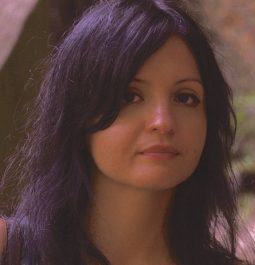Presentation
The Master’s in Portuguese Studies has recently been restructured to allow a better articulation with both the bachelor’s and the doctorate degrees. With new seminars and reformulated curricular units, while maintaining a perspective of continuity in relation to the bachelor’s degree, there has been a clear strengthening of the orientation of scientific specialization, which translates into the reinforcement of the theoretical dimension, the predominance of thematic seminars and the prioritisation of working towards research within the scope of Portuguese Studies.
Objectives
- to deepen theoretical reflection, consolidate and complement the historical/literary and historical/cultural knowledge acquired in the 1st cycle;
- to obtain theoretical and methodological competences of scientific research in the area of Portuguese-speaking literatures and cultures in their relation with other cultures, namely: skills for the problematisation and definition of relevant study objects, selection and collection of relevant information of a bibliographical, documental, ethnographic and/or testimonial nature, organisation of collections and critical analysis, processing and interpretation of information;
- to acquire the ability to design and implement original approaches to cultural and literary themes, based on the knowledge and skills mentioned in the previous points;
- to develop the ability to apply acquired knowledge and skills to new situations;
- to enhance the ability to identify problems or gaps in the knowledge acquired regarding Portuguese literature and culture, to develop appropriate solutions and to issue critical judgements in situations of limited or incomplete information, based on personal research and framed in a reflection of ethical and social character that deals with the plurality and interaction of cultures and aesthetic and literary criteria;
- to acquire skills in rigorous analysis, presentation and synthesis of knowledge, problems, procedures and research results, in oral and written form;
- to acquire the ability to develop a rigorous and systematic research work, leading to the elaboration of a dissertation;
- to acquire knowledge and skills that will enable students to continue learning autonomously throughout their lives.
Vacancies
Secretariat
estudos.portugueses@fcsh.unl.ptAssociated Research Units
Curricular structure
Duration: 2 years / 4 semesters Total Credits: 120 ECTS (60 in curricular units + 60 in the non-taught component)
Modalities of non-taught component: Dissertation, Project Work or Practical Work Experience with Report
Students complete 40 credits in all the taught units offered. Students also complete 20 credits in a free-choice regime (in post-graduate level curricular units of NOVA FCSH, of NOVA or of other national or foreign higher education institutions, by means of a protocol). In the 3rd semester, students must attend a seminar to accompany the non-taught component (5 ECTS).
The Master’s degree corresponds to Level 7 of the NQF and EQF - National Qualifications Framework/European Qualifications Framework.
Coordination
Faculty staff
- Abel Barros Baptista
- Ana Maria Sirgado
- Clara Rowland
- Gustavo Rubim
- Humberto Brito
- Joana Meirim
- Paula Cristina Costa
- Teresa Araújo

